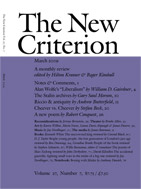- NYC criminal defense lawyer and TV commentator Robert Simels convicted of witness tampering in closely watched case [NY Daily News and more, NYLJ, Greenfield, Simon/Legal Ethics Forum]
- Title IX suit says harassment by other students pushed school girl into anorexia, school should pay [Pittsburgh Post-Gazette]
- Federal judge upholds some Louisiana restrictions on lawyer advertising, but says rules on Internet communication unconstitutionally restrict speech [WAFB, Ron Coleman]
- “Woman Claims Display Was So Distracting, She Fell Over It” [Lowering the Bar; Santa Clara County, Calif. Dollar Tree]
- Associated Press now putting out softer line on blogger use of its copy, but is it a trap? [Felix Salmon, earlier]
- Update: Google ordered to identify person who set up nasty “skank” blog to attack NYC model [Fashionista, earlier here and here]
- Some speak as if lawsuits over “alienation of affections” a thing of the past, alas not so [Eugene Volokh, more, yet more; earlier]
- Connecticut: “State Holds Hearing On Whether Group Can Hand Out Food To The Poor” [Hartford Courant; “Food Not Bombs” group at Wesleyan]
Note: post was mistakenly titled as “August 22 roundup” at first, now fixed; thanks to reader Jonathan B. for catching.

 in arms about” changing the law, and has kind words for a certain website that is “the single best place to track all its devastation”. At The New Criterion, Roger Kimball finds that the
in arms about” changing the law, and has kind words for a certain website that is “the single best place to track all its devastation”. At The New Criterion, Roger Kimball finds that the  government does stupid things sometimes without thinking”), and, slightly less recent,
government does stupid things sometimes without thinking”), and, slightly less recent,